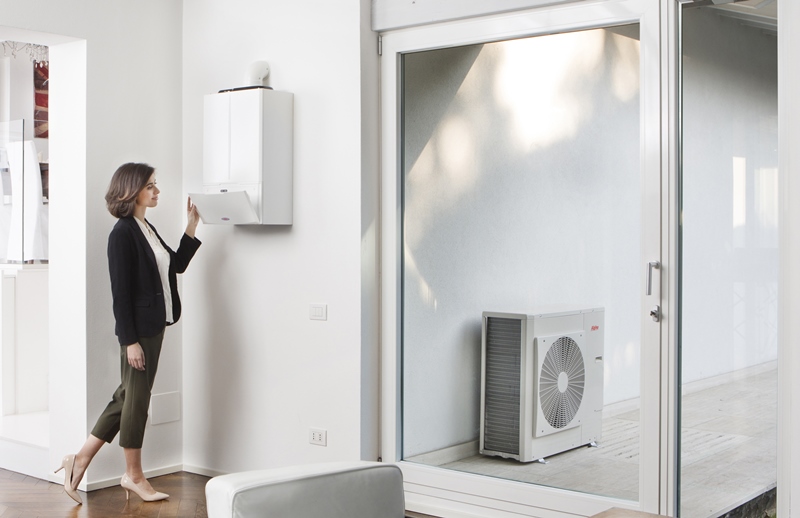
Research from Alpha has highlighted that 74% of UK household billpayers care about their carbon footprint but only 38% would switch their heating for a non-fossil-fuel system. Dan Wilden, National Renewables Manager at Alpha explains how innovation is helping to drive change.
In its Seventh Carbon Budget, the Climate Change Committee (CCC) stated that emissions from residential buildings accounted for 12% of national greenhouse gas emissions. The majority of these emissions (96%) were from the use of fossil fuels for space heating and hot water.
If the UK is to meet its climate commitments then carbon emissions from domestic space heating must reach net zero by 2050. This means the government should be doing everything possible to encourage the take up of low carbon heating systems, such as electric heat pumps.
Heat pumps are an efficient form of heating and when sized correctly, they can produce over three units of heat to every unit of electricity consumed. But, heat pump systems can be expensive upfront and might not be suitable for every home. Instead, far greater numbers of UK homeowners would be encouraged to install heat pumps technology if the government was to give its backing to promoting hybrid heating systems.
Hybrid heating systems pair a traditional gas boiler with an electric heat pump. This enables the two elements to act in tandem using smart controls to provide space heating and hot water in the most cost effective and carbon efficient manner.
The benefits of using a hybrid system for dwellings, particularly hard to heat homes, is that the heat pump can be used to provide space heating when heat demands are low, during the shoulder heating season, for example. While, at times of high heat demand, the heat pump can run in tandem with the boiler to boost the heating to ensure the home will always be comfortable.
Another benefit is how a hybrid system enables a home’s central heating system to continue to run at higher temperatures when required, which means the existing central heating radiators can be retained. This simplifies installation, saving on cost, reducing disruption, and speeding up installation.
If the government was to provide even a modest amount of grant funding towards the cost of a hybrid system, it would encourage domestic take-up of this system. The precedent for this approach is Norway, where government policies have helped the Scandinavian country become a leader in domestic heat pump installations.
Norway first began installing electric heat pumps following the oil crisis of the 1970s. Since then, government subsidies and grants have helped promote heat pump adoption and reduce the up-front cost of the technology. Alongside financial carrots, Norway’s government also added the stick of increased carbon taxes on fossil fuels used for heating.
Norway’s transition to air source heat pumps is a testament to what can be achieved through a combination of innovative technology, supportive policies, and cultural acceptance. Now over 60% of Norwegian homes are heated using heat pumps, which has resulted in an 83% reduction in CO2 emissions from heating.
In the UK, the government has introduced the Boiler Upgrade Scheme to encourage the take-up of low carbon heating. This offers £7,500 towards the cost of an air source or ground source heat pump.
Heat pump only heating systems can be expensive, on average £13,000 for a typical installation. Aside from the cost of the heat pump itself, a series of home upgrades can be required to ensure the heat pump will work efficiently; these can include fabric insulation upgrades and, potentially, upgrades to heating pipework and hot water systems. As a consequence, cost is often cited as one of the barriers to UK home’s failing to switch to heat pump only systems
Hybrid systems typically cost 30% to 40% less than standard heat pump systems – under £9,000 on average.
Alpha continues to call for a grant of £2,500 to help fund the installation of a hybrid system. This is less than half of the funding available for a full HP system, which means that current funding could help three times the number of households take their first steps in renewable heating.
Research by Alpha found that 53% of UK bill payers would likely take advantage of the Boiler Upgrade Scheme if hybrids were included. The benefit of this is that hybrids offer an 80-90% carbon reduction compared to a standalone gas boiler, so it makes sense to encourage more homes to take this transitionary step and speed up the UK’s journey to a lower-carbon future.













